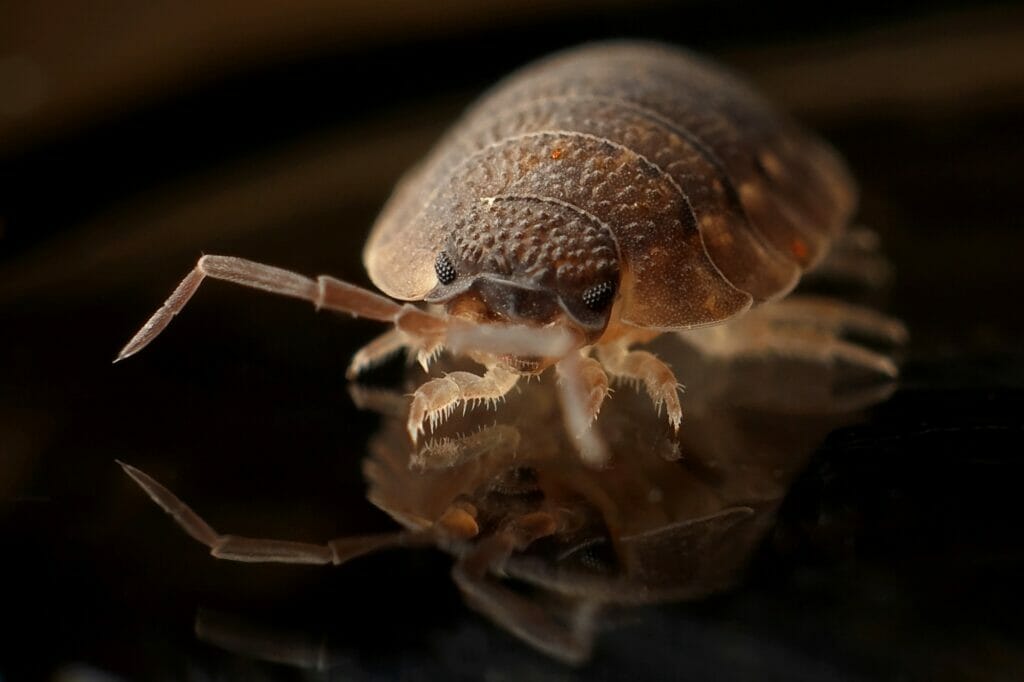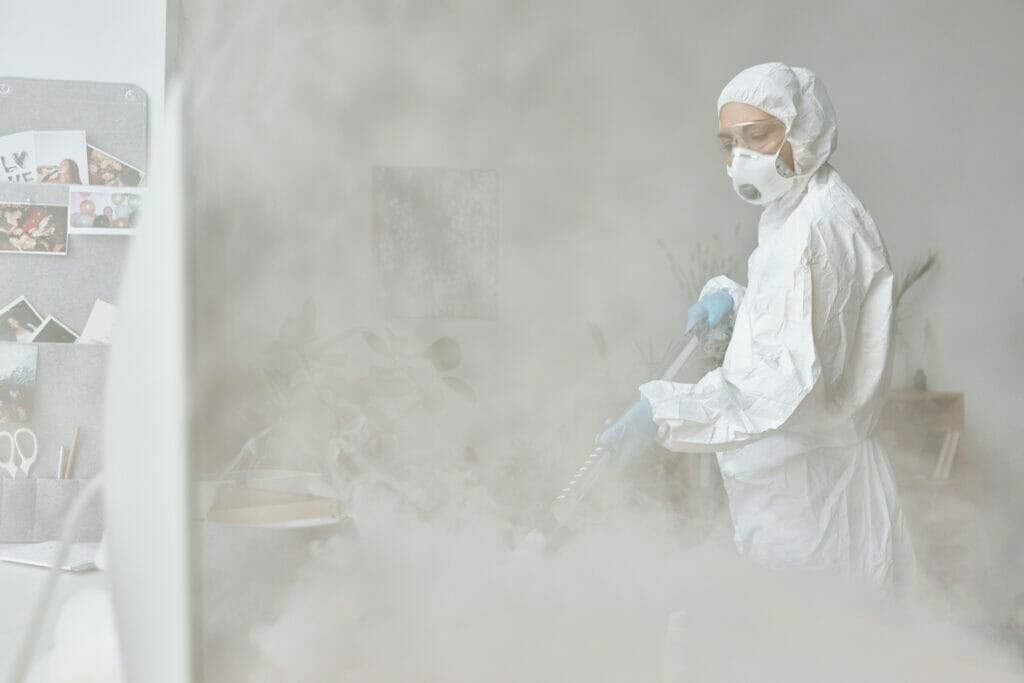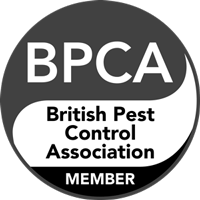Table of Contents
Bed Bug fumigation is a type of pest control treatment, often used in the most severe cases and infestations. To many, it can sound like an extreme solution for such tiny pests. However, it’s often necessary in order to completely remove bed bugs from a specific location.
Here at Integrum, we’re experts in bed bug control London, implementing professional bed bug treatments and proofing services. Using our extensive knowledge and experience, we’ve put together the Ultimate Guide to Bed Bug Fumigation.
What are Bed Bugs?
The common bed bug, scientifically referred to as Cimex lectularius, is a tiny insect measuring roughly 4-5mm long when fully grown. They are parasitic creatures, which means they gain their nutrients from a host animal, most commonly sucking blood from humans.
Incredibly, bed bugs are capable of living up to a year without food – they simply lay dormant, waiting for their next host to arrive. Unfortunately, this means it can be challenging to identify their presence on your property – unless you know the telltale bed bug signs to look out for.
Why do we need to Control Bed Bugs?
As previously mentioned, bed bugs are parasitic creatures that feed off the blood of humans. Bed bugs like to capitalise on their meals when we are asleep – which is also why they have the name bed bugs! When they bite us, they create small lesions all over the skin. These cuts can swell and become itchy, developing into a rash and even more extreme allergic reactions depending on the person.

As well as the harm they can cause to us, another main reason for controlling bed bugs is the rate at which they can reproduce. On average, female bed bugs can lay up to 10 eggs per day and 500 eggs in their lifetime. This means that a small infestation can quickly get out of hand if left untreated.
How are Bed Bugs Controlled?
When it comes to controlling bed bugs, there are several options, although some are much more effective than others. There are natural methods out there, yet their efficacy is somewhat debatable.
Encasements are one option for the home that contains the bed bugs for extended periods to prevent them from spreading. However, they cannot ensure that bed bugs, in all stages of their lives, have been removed. Dormant bed bugs could remain in the mattress and spread to other areas of the home over time.
There are two main types of treatments used for getting rid of bed bugs – chemical treatments and heat treatments. Chemical treatments involve using strong insecticides to kill off bed bugs in all stages of their life. It’s highly effective when performed by a professional pest controller; however, sometimes, it just isn’t enough to eradicate every single bed bug.
In order to successfully kill all bed bugs, the chemicals must come into contact with them. But with their tiny size and ability to lay dormant for months on end, this can be difficult to achieve, which is where heat treatments come in.
Heat treatments work by raising the temperature of the affected areas so high that the bed bugs’ enzymes denature, thereby killing them off. Using a combination of both heat and chemical treatments is the best way to ensure all bed bugs are removed, and no eggs are left behind.
DIY methods and over-the-counter insecticides are rarely effective. While they may appear to be successful at first, eggs and dormant bed bugs will grow and return months later, causing yet another full-blown infestation. Because of this, it’s vital to use the services of a BPCA qualified technician with experience in professional bed bug control treatments.
Fumigation
A common term used for bed bug control treatments is fumigation, but what exactly does it mean? When you hear the term you might be imagining a huge tent completely covering your home, like the image below, right?

However, this is actually how the fumigation process works over in the United States. The whole home is sealed using these non-permeable tarps before powerful toxic gases are pumped around the entire property. Once the process begins, the home is not safe for entry and the homeowners must find alternative accommodation for anywhere between 1 day to a whole week.
Fumigation here in the UK is much less extreme. The US suffers greatly from termites that can quickly and easily take over a whole home, burrowing themselves in the property’s structure. The only way to control termites properly is to undergo this fumigation process demonstrated above. Fortunately, we don’t have termites in the UK meaning we don’t need to use the same procedure.
Although bed bugs are able to move between rooms, they rarely spread across a whole home. The extent of a beg bug infestation is nowhere near the severity of termite infestations, which means less intrusive treatment methods are required.
The term fumigation, when used in the UK, actually refers to professional chemical treatments. Strong insecticides, specifically for bed bugs, are typically sprayed around the target area or combined with foggers to generate smoke. The exact method used may vary from infestation to infestation as it depends on the type of area that’s infested. Some treatments may not be appropriate for specific locations, but they all work to eradicate bed bugs in all stages of their lives.
Our method of getting rid of bed bugs is much more effective and less disruptive than the US alternative, plus there’s no need to leave your home for a week – instead, you will only need to leave the infested room for a couple of hours before getting back to life as usual.

How Long does Fumigation Take?
The time needed for the fumigation process ultimately depends on two factors: how big the property is and how severe the bed bug infestation is. Typically our bed bug treatments are completed within the space of a couple of hours, and always within the same day, allowing you to get back to normal in your bed bug-free home as soon as possible.
Before the process begins, your pest control technician will discuss the timeframe of the whole treatment with you, and let you know when everything is safe and sound.
Alternatives for Fumigation
Fumigation is not always necessary for the control of bed bugs. Sometimes insects bombs and spray treatments are enough to kill off the infestation without the need for a full fumigation treatment.
Heat treatments are also effective but can only be carried out by specialists with the required equipment. Nevertheless, using heat can be beneficial when targeting a small area, say one piece of furniture which is infested.
As previously mentioned, most DIY methods and insecticides available to the public are simply not strong enough to fully remove a bed bug infestation.
Professional Bed Bug Control
If you’ve noticed signs of bed bugs in your home, then you need the help of a pest control professional. Here at Integrum, our technicians are fully qualified and have years of experience in bed bug control treatments – including fumigation.
With emergency appointments available for domestic and commercial jobs, our experts will have your London properties bed bug-free in no time.
We know that each pest control problem is unique, which is why we offer surveys and free quotes with no obligations. Contact our friendly team today on 0204 566 5522 for advice on the most appropriate bed bug treatment methods.




